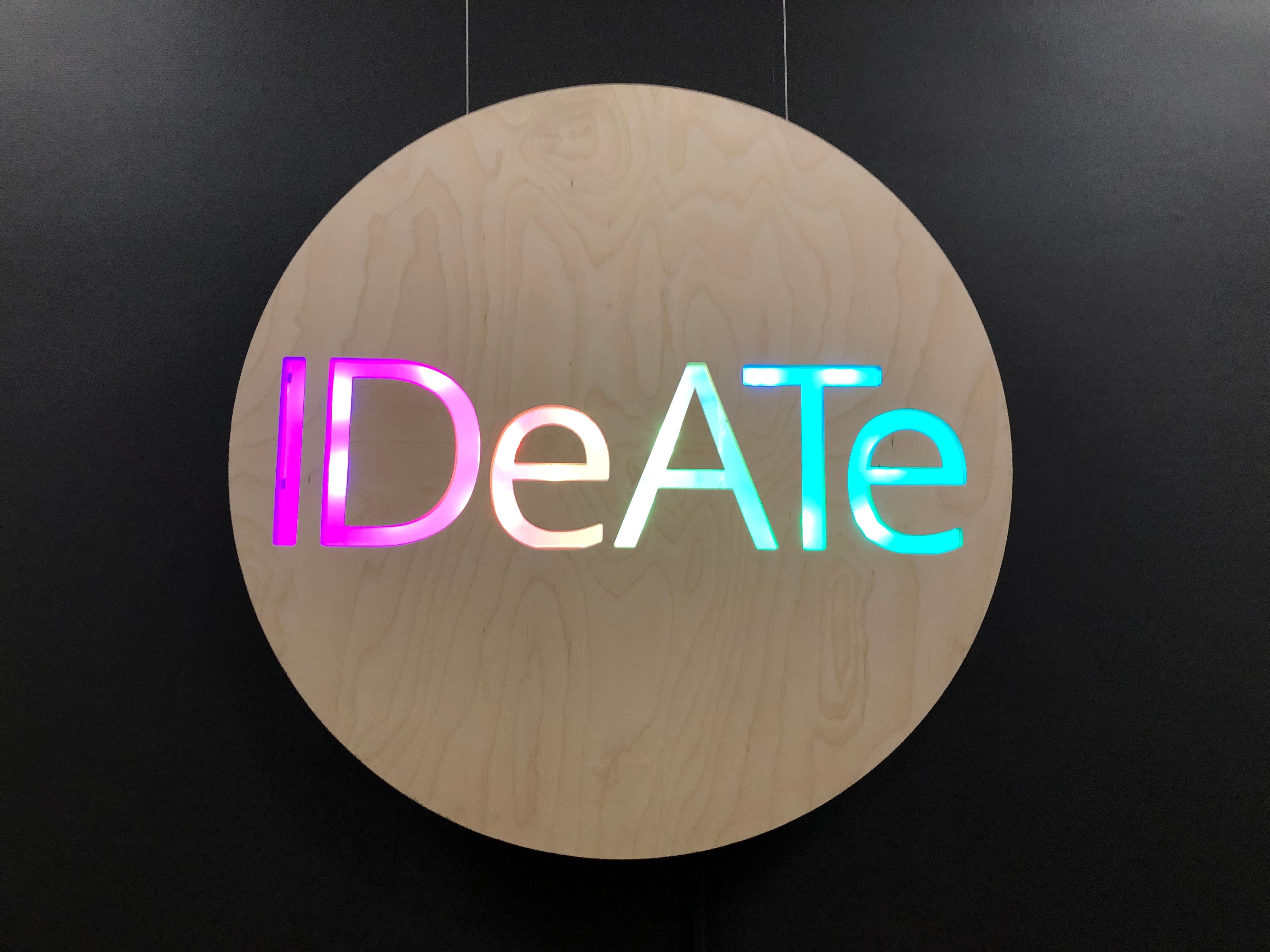Every Possible Utterance + HCII RAship + Have A Great Break
Every Possible Utterance
You have spent the last three months stretching and growing your brain in new directions. Now is the time to immerse your grey matter in an evening of sensory exploration, moving through a unique architectural environment while being accompanied by roving musicians. The creative minds that brought you Subsurface are moving above ground to present Every Possible Utterance on Friday, December 13th at 8:00 p.m. at MuseumLab. The performance is a collaboration between the IDeATe classes Exploded Ensemble, Animation Studio, and Activating the Body, integrating art, technology, and engineering. The event is free and open to the public, but tickets are required for entry. Shuttles will be available to transport Carnegie Mellon students to and from the venue. Pick-ups will be 7:15 and 7:30 from Frew Street near Hunt Library, returning at 10:15 and 10:30. Additional information is available at facebook.com/explodedensemble.
Have a Great Break!
From everyone at IDeATe, we wish you a happy and restful winter break! If you have any projects stored in the labs, please collect them so that they don't get lost in our winter redd up. If you have items checked out from IDeATe Lending, please return them before you leave so that we don't freak out and wonder where our stuff is. Any issues with storage or lending, please send a note to help@ideate.cmu.edu. See you in January!
Make a Documentary in Brazil During Spring Break
The English/IDeATe course 76-374 Mediated Narrative has traveled to Cuba that last few years to make an interactive documentary. This year, the class is headed to Brazil to work on an environment and sustainability documentary. For more information, contact Professors Ralph Vituccio and Therese Tardio.
RAship in Human-Computer Interaction Institute
Research Assistants wanted for the UX Design for AI project in HCII. The project is working to make it easier for UX designers to envision and prototype products and services that leverage the capabilities of AI. Part of this is helping design teams recognize “low-hanging fruit,” the obvious and low-risk uses of AI that professional design teams seem to miss. For example, the Starbucks app never learns who pays for their coffee with the mobile app and never automatically lands these users on the pay tab when they access the app while inside a Starbucks. Additionally, the Instagram app does not use predictive text so influencers must repeatedly type the same tags for every post they make.
This spring, they are looking for students RAs that can help with two different activities:
- Design Tools: the team has developed two different taxonomies that describe AI. One focuses on the capabilities of AI, what it can do. The other focuses on design patterns that are used when the output of AI systems gets presented to users. They need help from RAs to design new forms that make the AI capabilities and design patterns accessible to professional UX designers.
- Design Workshops: the team is working with two different companies to help train their UX design teams in recognizing opportunities where adaptive interfaces can automate the work people do. These are situations where a worker repeatedly performs the same task in the same way. An adaptive interface will learn the pattern a user follows in order to complete a task. It then begins to automate the work they typically do, reducing the effort needed to navigate and select items. They will work with these companies through workshops where their employees practice recognizing opportunities and generating adaptive interaction designs.
- visual communication design
- information design
- design teaching
- design facilitation
- interaction design
- wireframing transactional flows
- adaptive interface design
RAs will be needed for 9 to 12 hours per week over the spring semester. Independent study credit is an option.
If you are interested, please send the following to Changhoon Oh:
- short description of your experience and interest with adaptive interfaces, design facilitation, and information design
- resume
- list of times that you are available for a weekly team meeting during the spring semester
MIT Reality Hack
MIT Reality Hack is a 5-day event held every January that comprises of thought leaders, brand mentors and creators, participants, students, and technology lovers to come together and attend tech workshops, talks, discussions, fireside chats, collaborations, hacking, and more. Participants of various backgrounds and all skill levels attend from all over the world. The deadline to apply is December 13th!
AlphaLab Gear 2020
AlphaLab Gear is a nationally-ranked hardware accelerator in Pittsburgh, PA. They guide early-stage physical product companies through a 30-week program that takes companies from an initial idea or prototype, through engaging early customers, to fulfilling demand by manufacturing at scale. Find out more and apply by 11:59pm on January 26, 2020 at alphalabgear.org.
